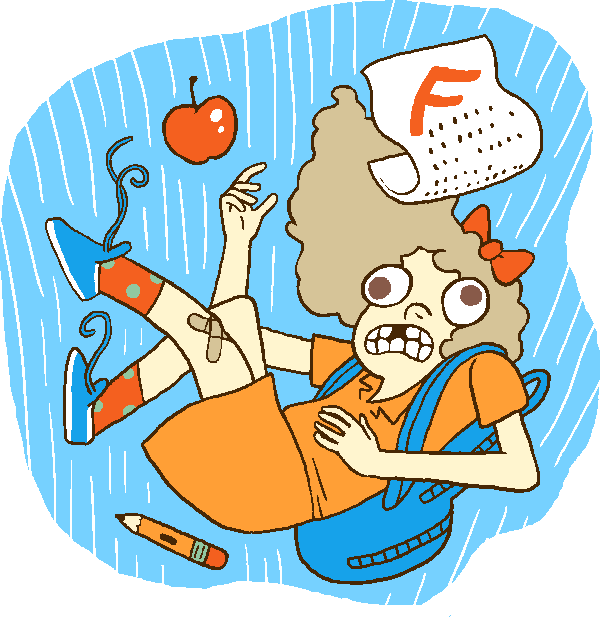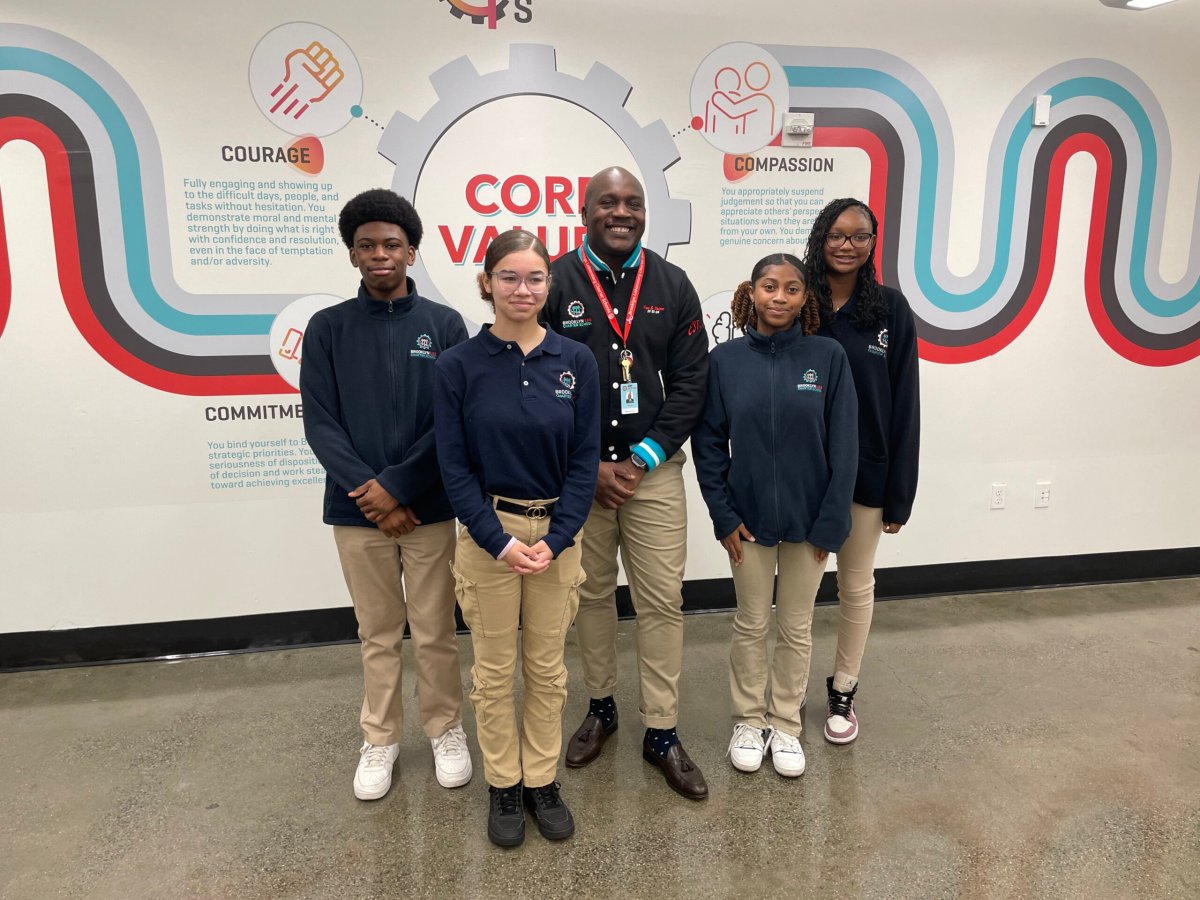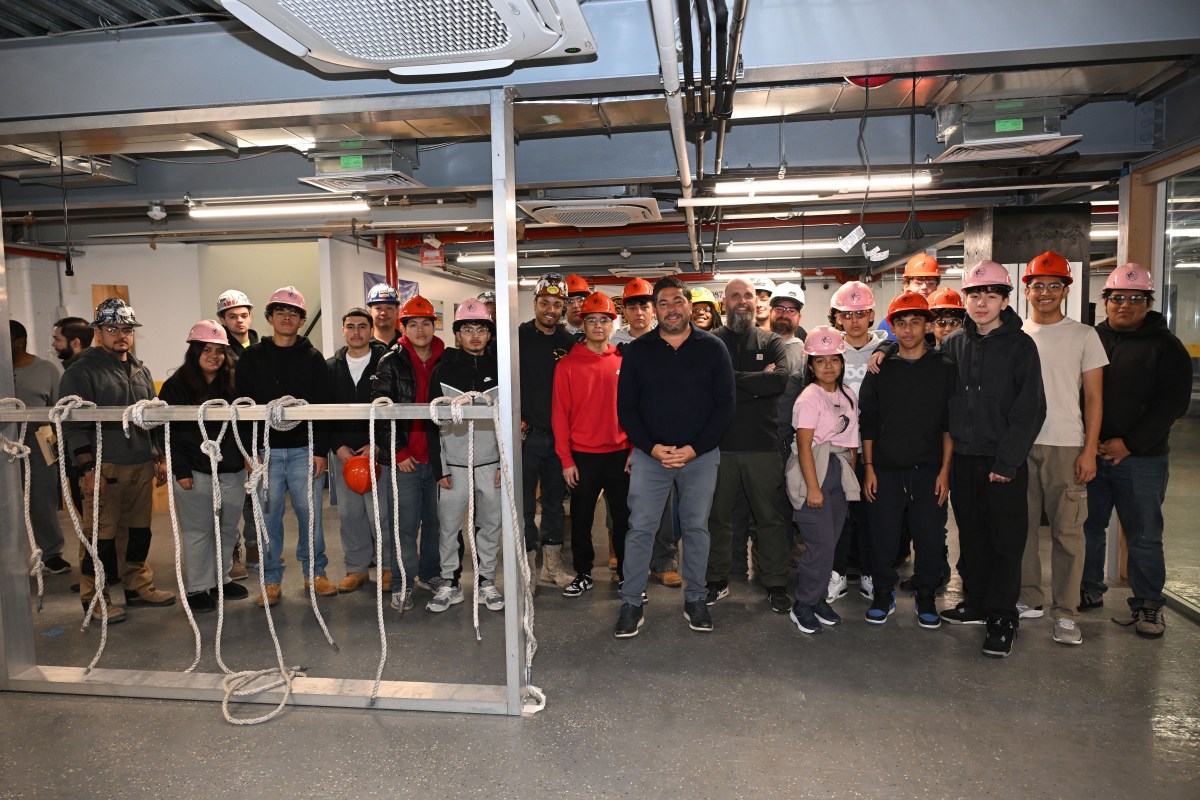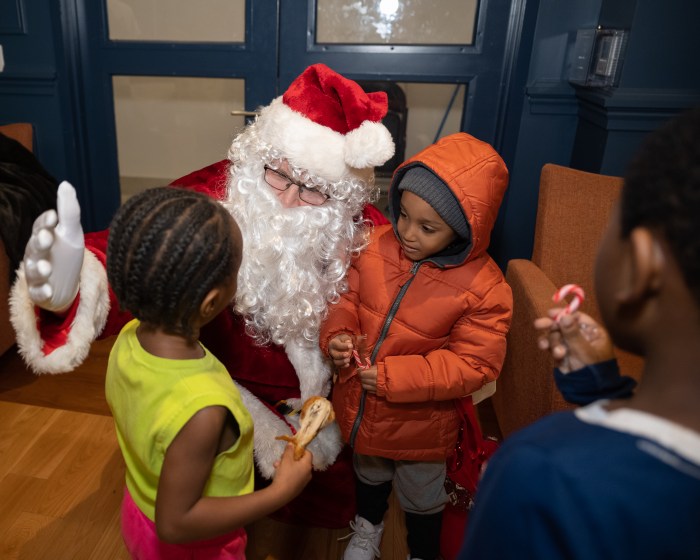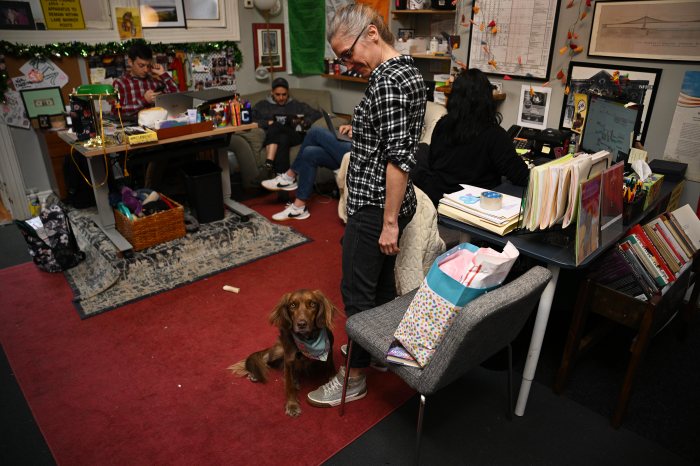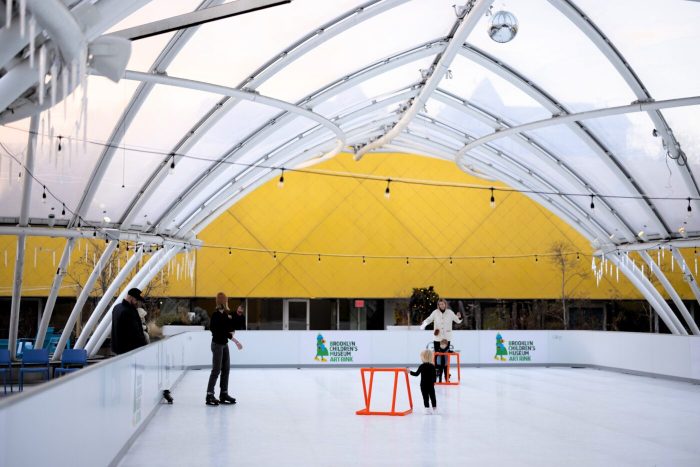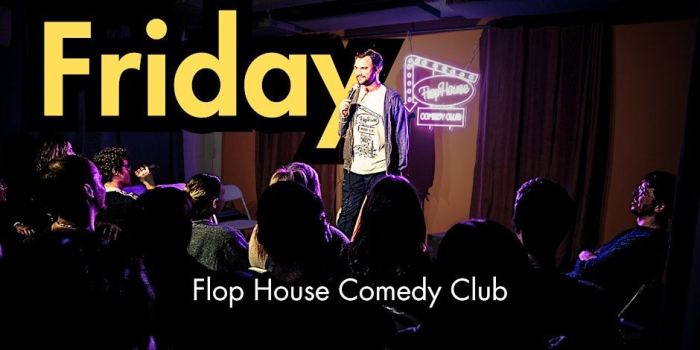Creating a supportive and productive workplace is often the key to engaging employees. What if that same approach was brought to a high school?
That is what Brooklyn Lab Charter School does with its high school students through peer-to-peer recognition platform Bonus.ly.
Although it is meant for work environments, this app has found its way to this Brooklyn Heights school after its CEO, Dr. Garland Thomas-McDavid, began looking for ways to combat chronic absenteeism and empower students following the COVID pandemic. An acquaintance showed her the app and she liked how it not only allows management to encourage others, but peers to one another as well.
“What I love about Bonus.ly, in addition to empowering everyone to be a giver,” Dr. Thomas-McDavid. “It also allows that person to have whatever positive recognition they receive. You have to think about how to capture the head and the hearts of the people. So [it was] trying to look for ways for our workforce that have been through a lot in the past few years post-pandemic.”
Bonus.ly works by giving recognition to those Brooklyn Lab Charter students who meet the school’s expectations when it comes to its four core values: creativity, compassion, commitment and courage. More specifically, these C’s refer to problem solving, not judging others, fully engaging in the school community, and so on.
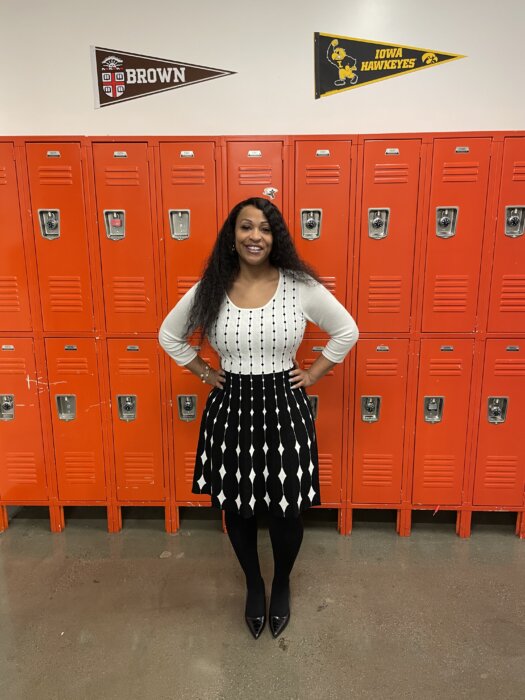
Officials say compassion is the most recognized core value.
“Bonus.ly allows us to say we believe everyone in the building can meet and exceed expectations,” Brooklyn Lab Charter School Principal Chuck Jones. “You are literally holding each other accountable.”
Those recognitions lead to rewards, or points, that then turn into opportunities for students to shop online at specific retail stores. Every 100 points equals one dollar, which leaders say can quickly add up.
Brooklyn Lab Charter only uses the app for its nearly 500 high school students. Its middle school uses are different system with its in-school general store. Jones said this is because the school wants to treat its high school students as though they were adults.
One area that calls for these students to be like adults is attendance. Chronic absenteeism has emerged as one of the main difficulties in New York schools, with a third of students missing about 10% of the school year between 2022 and 2023. Principal Jones said Bonus.ly allows for keeping a close eye on absences and latenesses, particularly because an absence is an absence; no excused or non-excused absences in this school.
Dr. Thomas-McDavid also said the school’s structure helps work on chronic absenteeism.
“We have a two year program in terms of attendance intervention,” she said. ”We work together with the MTSS program to look at the student leads. Because we can look at what makes in house intervention that they need for the students coming regularly, like uniforms, is there something that’s preventing the lower hanging fruit? Or is it something that we need to look at the home? We also have invested heavily in some social and emotional support.”
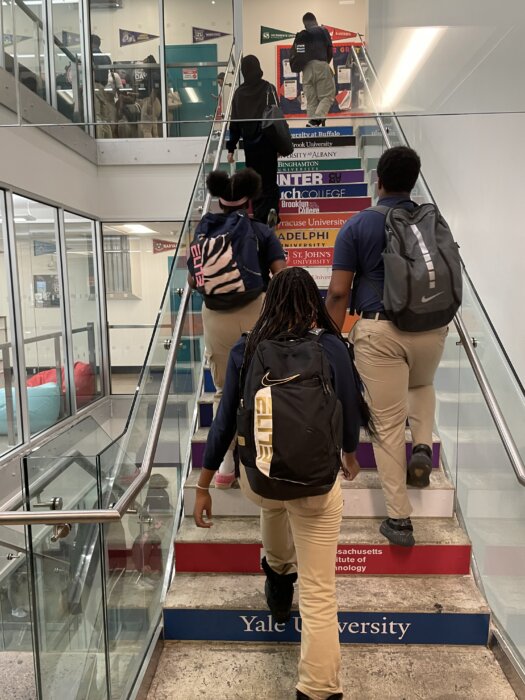
Wesner Pierre, CEO of the nonprofit Partnership with Children which is also tackling chronic absenteeism citywide, thinks the use of Bonus.ly at Brooklyn Lab Charter is a great idea — but that the app alone is not the solution.
“The key here is relationship building,” Pierre said. “There needs to be a healthy eco-system that is connecting families, students and schools. An app is only as effective as the person using it. It’s all about meeting where they are and supporting what they need.”
Brooklyn Lab Charter’s healthy eco-system began just before Bonus.ly was introduced to the school a year ago. During the 2021-2022 school year, in-person attendance was so scant that entire grades were in one classroom together. According to 11th-grader Nia, this allowed for community to build in those classrooms.
“Right after COVID, no one traveled,” she said. “So we built mini-communities and we moved as a team, and along the way, held each other accountable.”
According to Dr. Thomas-McDavid, once Bonus.ly was brought to the school, the students were curious about it and eventually came to love it. Now, she said, the staff and families appreciate it too.
“No school is perfect,” said Jones. “But Bonus.ly has allowed us to highlight ourselves and it is incentivized in positive ways that is a natural compliment to us.”
As much as the students at Brooklyn Lab Charter often use the app, they say they are not dependent on it. Instead, they feel the app is a useful tool to help get through high school itself.
“Bonus.ly enforces [us] to do better,” said 10th-grader Emmanuel. “In my old school, not everyone really was recognized for the work they do, like community service. This gives you courage and gives you recognition among the entire school.”
“They participate more in class,” Aicha added. “There’s an adrenaline, and there’s a positive competition. I work harder so I can be on the screen.”
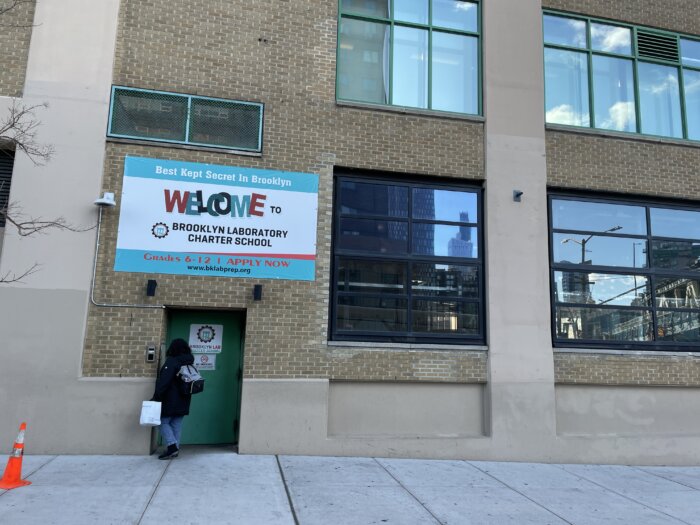
Ninth grader Ja’niya believes the app helped her overcome shyness. “It helps me with my confidence and gives me more of a reason to participate in class.”
When asked if other high schools should consider using Bonus.ly to create a stronger culture of responsibility and engagement, Dr. Thomas-McDavid smiled.
“Go for it,” he said. “I don’t believe that one size fits all anywhere. But it’s worth a try.”
Bonus.ly could not be reached for comment.


